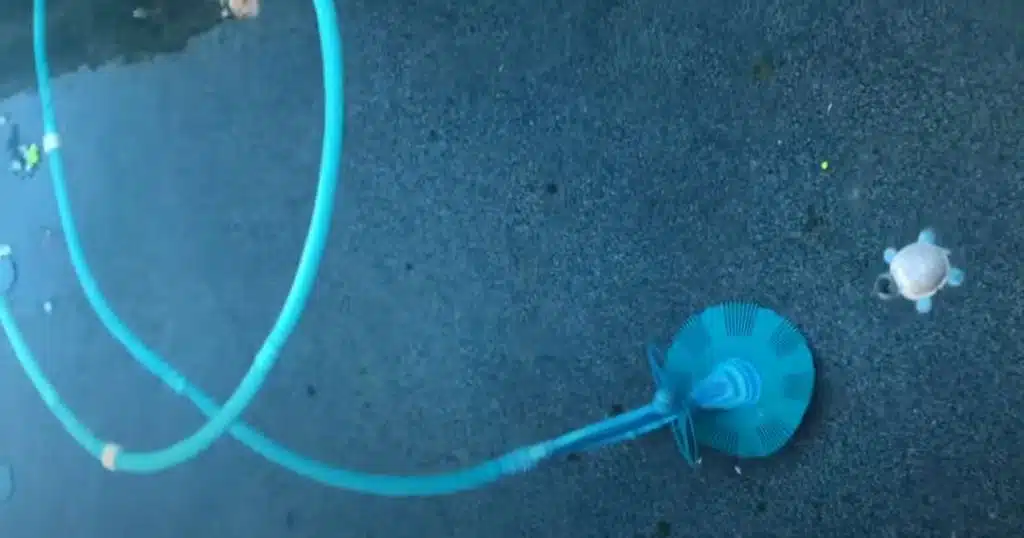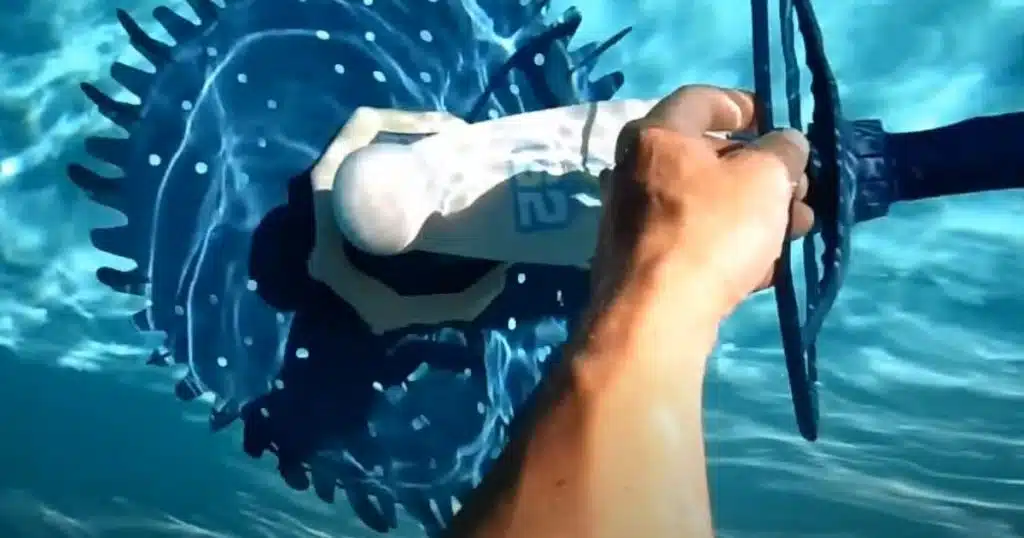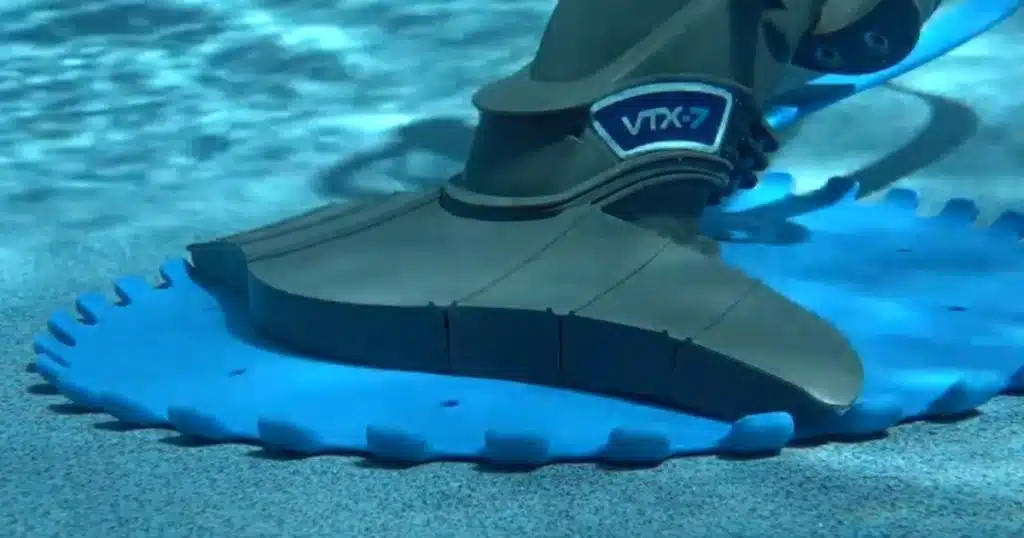As an Amazon Associate I earn from qualifying purchases.
Maintaining a crystal-clear pool requires the reliable operation of equipment like pool vacuums. Maintaining a clean and inviting pool can be challenging. A vital part of this routine is ensuring your pool vacuum is in top-notch condition. But what happens when your trusty pool vacuum stops moving? It can be frustrating and perplexing, leaving you wondering what went wrong. Let’s dive into some troubleshooting tips to get your pool vacuum back in action. In this guide, we’ll examine common problems that can cause your pool vacuum to stop moving and offer practical troubleshooting tips to restore its efficiency.

Introduction to Pool Vacuums
To keep a pool clean and safe, it’s vital to use a pool vacuum. This tool removes dirt and debris effectively. Using it the correct way can improve your pool’s cleanliness and life.
What is a Pool Vacuum?
A pool vacuum is a cleaning device that uses suction, pressure, or is robotic. It cleans pools by removing any debris. This makes the pool environment clean and well-maintained.
Types of Pool Vacuums
There are three main types of pool vacuums:
Suction
Suction pool vacuums are powered through the pool’s skimmer. They are a top choice for automatic cleaning and are usually more affordable.
Pressure
Pressure pool vacuums use water pressure to move and clean by attaching to the pool’s return line. They are effective for stirring up dirt.
Robotic
Robotic pool vacuums are self-contained and use batteries for cleaning. They offer hands-off convenience for maintaining your pool.
Importance of a Functional Pool Vacuum
A working pool vacuum is key to a clean and healthy pool. Regular cleaning, along with other maintenance like applying algaecide, removes debris and keeps the water clear. It’s crucial to keep your pool vacuum in good shape to maintain your pool optimally.
Type of Pool Vacuum | Key Features | Advantages | Disadvantages |
Suction Pool Vacuum | Connects to the pool’s skimmer suction tube
| Affordable option
| May have reduced suction power
|
Pressure Pool Vacuum | Connects to the pool’s return line or jet
| Efficient at cleaning large debris
| Rely on the pool’s water pressure
|
Robotic Pool Vacuum | Fully automated with battery-powered movement
| Convenient and hands-off cleaning
| Require regular maintenance and charging
|
No matter what type you have, a well-functioning pool vacuum is fundamental. It maintains your pool’s cleanliness and health.2 Knowing how to use, maintain, and fix your pool vacuum is essential to keep it working well.
Problems and solutions for different types of pool vacuums
Suction Pool Vacuums Problems and solutions
With suction pool vacuums, trouble often comes from the hose. An air leak or a clog can stop suction power.
Solution: This makes the vacuum stall.1 To fix this, check the hose for leaks and make sure it’s clear. You can also try increasing the cleaner’s power by blocking other lines.

Pressure Pool Vacuums Problems and solutions
One common problem with pressure pool vacuums is inadequate water pressure. This issue can arise due to several reasons:
Clogged Filters: When the filters are clogged with debris, it restricts water flow to the vacuum, reducing its effectiveness.
Pump Issues: Problems with the pool pump, such as a malfunctioning impeller or air leaks, can also lead to inadequate water pressure.
Solution: This is often caused by a clogged filter or pump basket. Regularly clean these components to ensure proper water flow and maintain optimal vacuum performance.
Robotic Pool Vacuum Problems and solutions
Robotic pool vacuums often have trouble with their power.If the light on the power supply is not illuminated, it may indicate insufficient power.
Solution: Ensure the vacuum is properly set up. Check for anything that might be stopping its movement, like debris.
If none of these steps help your pool vacuum move, it’s time to call in the pros. Reach out to Clear Choice Pool Care & Maintenance at (214) 974-8960 for expert help.
Common Causes and Troubleshooting Steps
When your pool vacuum stops, it’s not fun. But, many common problems could be the cause. Knowing these can help you fix the issue fast. It doesn’t matter if your vacuum is suction, pressure, or robotic. Find the root cause problem and take appropriate action to fix it.
Hose and Connection Issues
Sometimes, a pool vacuum won’t move due to hose or connection troubles. Suction pool vacuums might have less power if air gets in through leaks. This stops the vacuum from working well.
Check the hose for leaks often and clear any blockages to keep your vacuum running properly. Pressure cleaners might not move if their hoses can’t reach or if they leak air.
Clogged or Damaged Parts
Pool vacuums can struggle if their parts are clogged or broken. Suction vacuums might not have enough power if their lines or filters are clogged. If their parts are worn, they won’t move around the pool well. Pressure cleaners have issues when their components, like thrust jets or wheels, don’t work right.
Power Supply and Motor Problems
The problem could be with the power or the motor of the pool vacuum itself. A bad power source or motor doesn’t allow the vacuum to move. For robotic vacuums, check that the power supply gives the right voltage. Also, make sure the motor works well.

Preventative Maintenance: Pool Vacuum Not Moving
Regular maintenance is key to keeping your pool vacuum in good working condition. Here are some tips to help prevent issues:
- Clean the vacuum head and hose regularly to remove debris.
- Inspect cord and connections properly to prevent damage.
- Check the pump for leaks and ensure it is properly primed.
- When not in use, store the vacuum in a dry and shaded area to protect it from environmental damage.
- Follow the manufacturer’s maintenance guidelines to keep all components in top condition.
When to Call a Professional
If you have tried troubleshooting your pool vacuum and it still isn’t moving, it may be time to call a professional. A pool maintenance expert can diagnose and fix more complex issues that may be beyond your capabilities.Feel free to seek professional assistance to prevent additional damage to your pool vacuum or other pool equipment.
Frequently Asked Questions
The most common reasons for a non-moving pool vacuum are blockages, low water pressure, or mechanical failures. Check for debris in the vacuum head, hose, and filters, and ensure the pool pump is working correctly.
Slow or erratic movement can be caused by low water pressure, air leaks in the hose, or worn-out parts. Check the hose for leaks, ensure proper connections, and inspect the vacuum components for wear and tear.
If you find a leak in the hose, you can patch it with a repair kit or replace the damaged section. For significant damage, it might be best to replace the entire hose.
Yes, a malfunctioning pool pump can lead to insufficient water pressure, which is necessary for the vacuum to move and clean effectively. Regularly check and maintain your pool pump.
Ensure that the pool pump is running efficiently, clean the filters, and check for any blockages or leaks in the system.
Wrapping-Up
Understanding the reasons why your pool vacuum may cease to function is key to swiftly resolving the issue and ensuring your pool remains clean and enjoyable. By following the troubleshooting tips provided, you can effectively restore your pool vacuum’s performance and continue to maintain a pristine swimming environment for all to enjoy.
Amazon and the Amazon logo are trademarks of Amazon.com, Inc, or its affiliates.
Leave a Reply